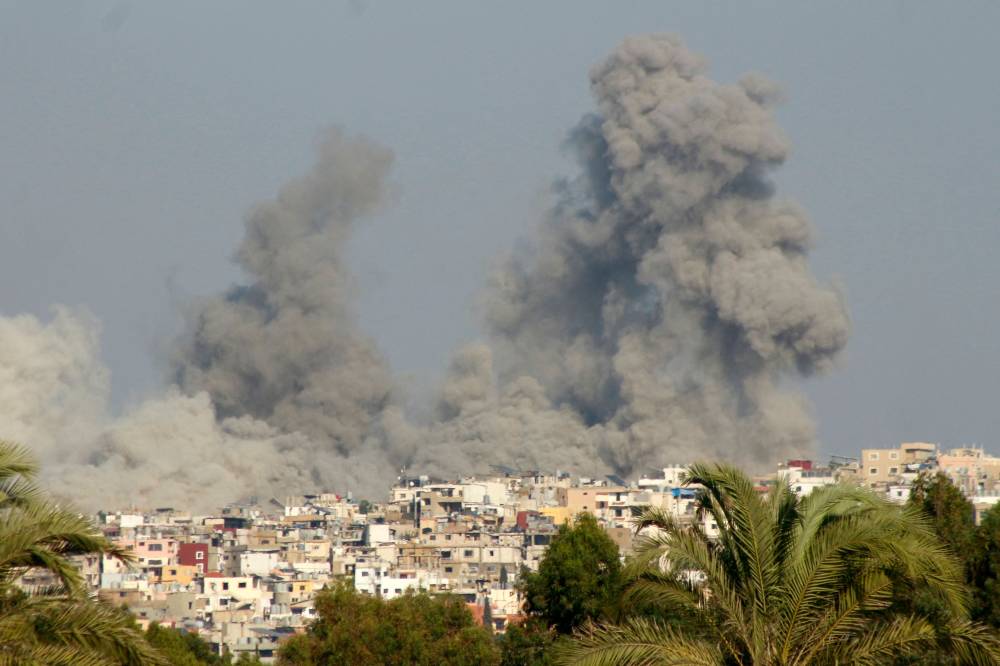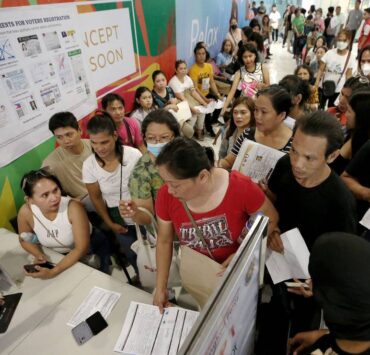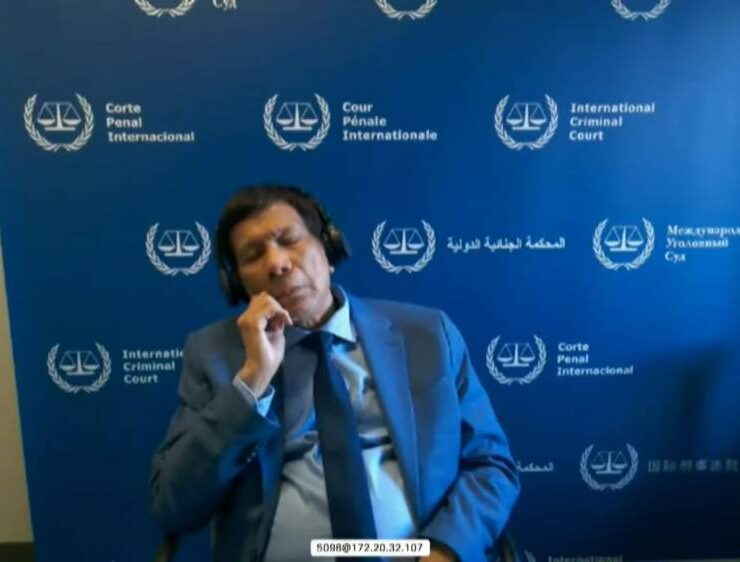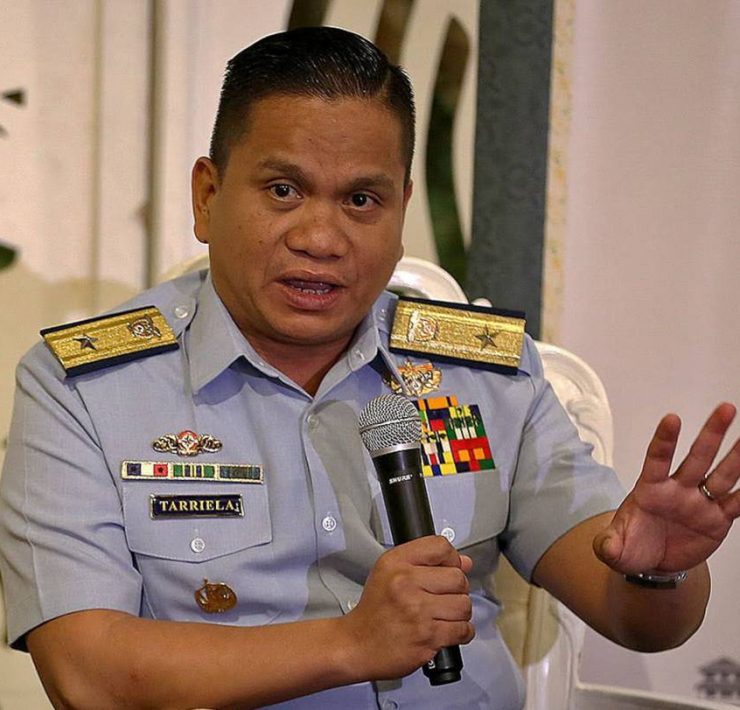OFWs in Lebanon seek faster repatriation

Overseas Filipino workers (OFWs) caught in the escalating tension and violence in Lebanon are appealing to President Marcos to take action for their immediate repatriation.
One OFW said she was willing to risk her life to take videos of the ongoing bombing in their area from the top of a building, just to show the dire situation to all relevant authorities.
In an online press conference organized by Migrante International on Sunday, several OFWs expressed frustration with what they perceived to be a sluggish response from the government.
Rachel Kiocho, a nail technician in Dahieh, where Israeli fighter jets dropped dozens of bunker-busting bombs on several buildings, recounted her experience of being abandoned by her employer.
Fortunately, a Lebanese family took her in, and she now feels safer in a more secure location. But she still seeks assistance and rescue from the government.
“Many of us want to return home but are struggling with the process,” she said.
Filling up forms
Christine Lao, who has been working in Lebanon for a long time, said she never considered returning home until the recent turmoil.
“We’re close to the bombing site, and every time there’s an explosion, the building shakes. We have a 6-year-old with us, and my sibling keeps asking, ‘Are we going to die?’” she said.
She said they already completed the repatriation form and were advised to go to the Philippine Embassy to fill out another assistance form and submit their pictures, IDs and other documents.
These documents were submitted to the immigration office, Lao said, and they were told that the process would take about 20 days. It has been more than a month, she said.
“Our papers are under evaluation because we’re here as TNT. They said we need to wait for the update,” Lao said.
“TNT” stands for “tago nang tago,” which translates to “always hiding.” This refers to undocumented workers in a foreign country without the proper visas or permits, often living in fear of deportation.
Taking their chances
There are over 11,000 Filipinos in Lebanon, but according to Foreign Undersecretary Eduardo de Vega, the vast majority are “still determined to stay.”
“The mentality is they [would] rather take their chances here than go home. The old timers, especially those who have endured previous wars, say they’ve seen it all and they will survive,” Ambassador Raymond Balatbat said in a press briefing last week.
Balatbat disclosed that more than 1,000 OFWs initially applied for repatriation, but half have since backed out. This hesitancy, he explained, stems from loyalty to their employers—many of whom they have worked for over the last 20 to 30 years.
But Lao said they did not back out, adding that many Filipinos are eager to return home.
“When will they take action? Is it only when people are dying here? Is that how it works?” she said, on the verge of tears.
‘Their decision’
Mark Aquino, coordinator of Migrante International in the Middle East, explained the Kafala system, a sponsorship scheme that allows the exploitation of OFWs.
“Many of them are domestic workers who fall victim to various issues, such as contract substitution. Some enter with a different job title (like therapist), but when they arrive, they end up as domestic workers. It’s common practice in the Middle East for employers to take their passports,” he said.
This makes it more difficult for OFWs who want to leave, as they do not have their passports in hand.
Foreign Assistant Secretary Robert Ferrer said Lebanon has been under alert level 2 since October last year—meaning there shouldn’t be any Filipino workers there in the first place.
Alert level 2 is issued when there are real threats to the life, security and property of Filipinos due to internal disturbances or external threats in the host country.
“The 11,000 Filipinos, they knew the risks when they went there. They are adults, not children, so they should be responsible for the decisions they have made,” Ferrer told the Inquirer in an interview on Monday.
He added that the Philippine Embassy in Beirut would face difficulties repatriating OFWs, as many are undocumented or staying in Lebanon illegally.
‘Whose fault?’
“That’s why it’s not easy to go out; flights are still not available, and many are undocumented. They don’t have contracts, didn’t go through the POEA (Philippine Overseas Employment Administration) process, contract verification, and they don’t have proper work visas,” Ferrer said.
When asked about Filipinos whose passports are held by their employers, the Department of Foreign Affairs official said: “There’s a law stating that the passport belongs to the Republic of the Philippines, not to you. Therefore, you should not give it away or allow foreigners to hold it. Going back to the main [point], they are adults. They give their passports as a guarantee to prevent them from leaving. So whose fault is that now?” he said.
For now, he noted that other areas in Lebanon are stable, except for those affected by the conflict. He urged Filipinos to take advantage of flights when they reopen on Oct. 10 and leave Lebanon while they still can, “because we have no guarantee that things will not become bad.”
OFWs seeking voluntary repatriation may register at tinyurl.com/2024Repatriation. They can also reach out to the embassy for any concerns or assistance via 70 858 086 or through the Migrant Workers Office hotline: 79 110 729. INQ





















